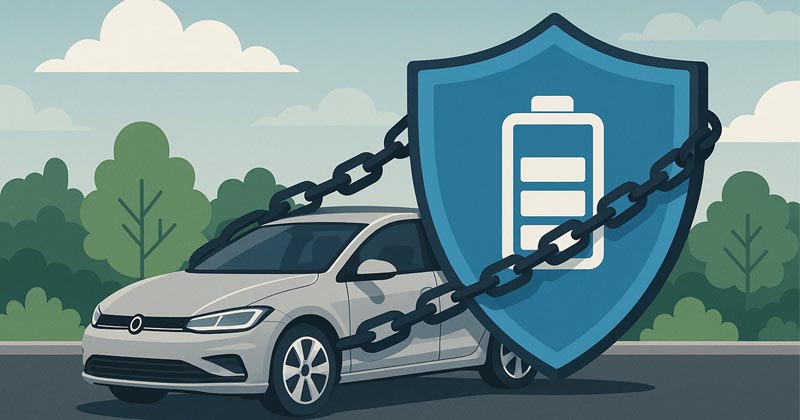Electric vehicles have transformed the automotive scene, but their batteries must be cautiously treated to ensure longevity. Deep discharging, or allowing the battery to sink to extremely low levels, is perhaps the most underappreciated hazard to EV health. This approach can have major effects on your vehicle’s performance and longevity. Let’s look at the dangers of deep discharging and how to protect your electric vehicle.
Accelerating battery wear
Depleting your EV battery to less than 10% often causes tremendous stress on its interior components. Chemical activities at lower charge levels accelerate damage to the battery’s anode and cathode, reducing total capacity and longevity. Recharging your EV before it drops below 20% reduces such stress.
Disrupting cell harmony
An EV battery pack comprises many cells that collaborate in harmony. Deep discharging throws this harmony out of balance by forcing some cells to age more quickly than others. Gradually, this imbalance diminishes the battery’s useful capacity and driving distance. Keeping a healthy charge range – usually between 20% and 80% – avoids these imbalances and smooths out the operation.
Thermal risks at low charge levels
When your EV battery has extremely low levels, its internal resistance rises, producing more heat when used or when charged. This heat instability can cause swelling or pressure buildup in the cells, creating safety concerns if not addressed. Preventing low SoC levels is important for avoiding thermal instability and lessening unnecessary stress on your battery.
Long-term consequences of deep discharging
Deep discharging doesn’t only harm individual components; it cumulatively impacts your EV’s performance and reliability over the long term. Some of the long-term effects are as follows:
- Shortened Range: As degradation sets in, your EV will lose range quicker than anticipated.
- Longer Charging Time: A degraded battery charges more slowly because of lower efficiency.
- Increased Maintenance Expenses: Imbalanced or harmed cells can be expensive to repair or replace.
By eschewing deep discharges and employing healthier charging patterns, you can reduce these hazards and lengthen your EV’s lifespan.
Tips for keeping your EV battery safe
Preventing deep discharge makes it easy to keep your EV battery safe. Some practical strategies include:
- Recharge early: Charge your EV as soon as possible before it gets below 20% SoC.
- Employ regular charging: Charge daily or bi-daily instead of letting the battery get run down.
- Monitor SoC levels: Use your vehicle’s dashboard or app to keep track of charge levels.
- Avoid prolonged storage at low charge: If you’re not using your EV for an extended period, store it with a charge level of around 50%.
These small adjustments can make a big difference in preserving your battery’s health over time.
The role of Battery Management Systems (BMS)
Modern EVs have sophisticated BMS technology that safeguards the battery against harsh conditions, such as deep discharging. The BMS constantly checks individual cell voltages and temperatures to ensure they remain within safe operating ranges.
Yet even the most advanced BMS cannot completely offset damage from repeated deep discharging. By charging responsibly, you can minimize using the BMS and extend your battery’s lifespan.
Common misconceptions about deep discharging
There are a few misunderstandings regarding deep discharging that must be clarified:
- “It resets the battery.” Unlike older nickel-based batteries, Lithium-ion batteries don’t need to be fully discharged before recharging.
- “It adds capacity.” Deep discharging doesn’t increase capacity; it decreases it by hastening deterioration.
- “It’s okay sometimes.” Although occasional deep discharging may not immediately damage your battery, doing so routinely will drastically reduce your battery’s lifespan.
Recognizing these myths aids you in making sound choices concerning the maintenance of your EV.
Conclusion: Charging for longevity
Deep discharging can cause serious risks to your EV’s battery, including accelerated degradation, cell imbalance, and thermal instability. By avoiding extremely low SoC and embracing healthier charging habits, you can safeguard your investment and bask in reliable performance for many years.
Your EV represents innovation and eco-friendliness. By caring for its battery, you allow for maximum efficiency and range for miles to come!


